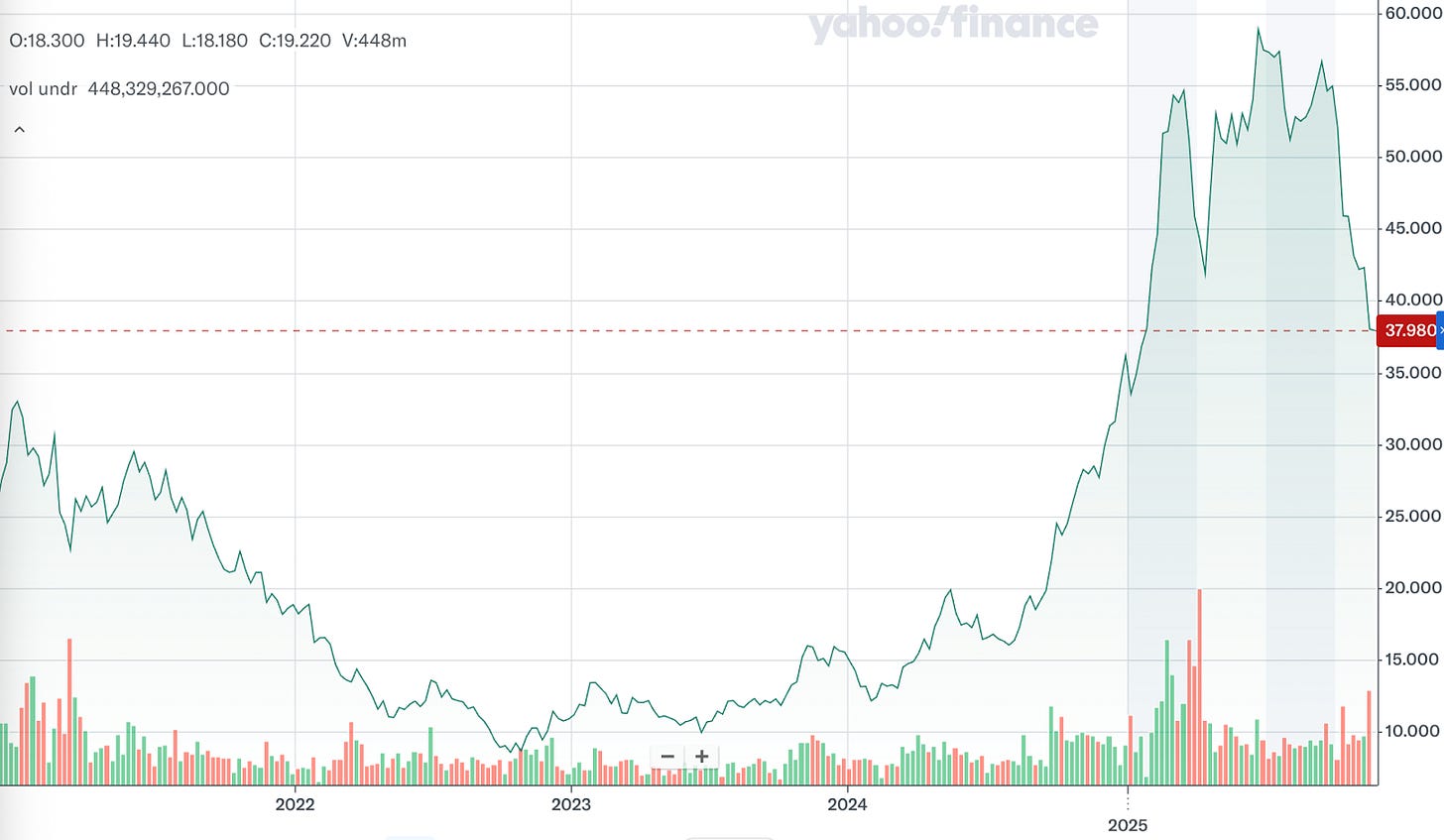Japan makes startup progress as General Atlantic makes first investment and AI startup hits record valuation
Unicorn valuations, global investors and cutting-edge tech show Japan’s startup ecosystem is maturing
Welcome back—Japan is putting itself on the map as a startup destination following a flurry of deals which included US firm General Atlantic making its first growth equity investment in the country.
The US firm, which has nearly $120 billion in assets under management, is paying $96 million to get a minority stake in HR software platform Smart HR, one of Japan’s few tech unicorns. The deal will see the firm buy around half of Japan-based fund Coral Capital’s stake in Smart HR.
Smart HR raised a significant $140 million in its Series E round announced last summer which added growth fund KKR and Ontario Teachers’ Pension Plan to its investor list. There’s been no updated valuation since it raised at $1.6 billion in 2021, but you can expect to see an IPO in time given this profile of investors.
What’s more interesting, though, is the ecosystem impact of General Atlantic’s investment.
The deal enabled Coral to return its 2017 fund six times over while retaining upside, the VC fund’s CEO James Riney revealed on LinkedIn. VC is about risk and Coral bet big on the startup. It raised an SPV to take its entire $13.3 million Series B round in 2018 and invest outside of its core focus as a seed-focused fund.
Notably, the deal is the largest startup secondary sale from a single seller in Japan. But, that’s not all, as another startup record was set last week.
Sakana AI, a startup co-founded by a former Google research scientist which is building nature-inspired foundation models, raised $128 million at a valuation of $2.6 billion. That’s the highest declared valuation for a private Japanese startup ever. That’s particularly notable since Japan has had few unicorns
But Sakana AI was already a unicorn. This new round nearly doubled its $1.5 billion valuation when it raised a $200 million Series A round in September 2024. Its investors include global names New Enterprise Associates, Khosla Ventures, Lux Capital and Nvidia.
It may operate in a hot space with a notable co-founder, but Sakana AI’s valuation, quantum of capital raised and investor line-up shows that Japan’s startup scene has matured.
Taken together, these are major signs for other global investors to enter Japan.
Japanese startups were traditionally focused on corporate areas and less on buzzy topics. But, in other news last week, Tokyo-based self-driving tech startup Turing raised $100 million from backers including Denso at a valuation of $388 million.
In a country long defined by salaryman culture and powerful corporate giants like Sony and Honda, startups are emerging as opportunities for founders, employees and global investors alike
Have a great week,
Jon
PS: Hypeworks, friends of Asia Tech Review, are hosting an evening event in Bangkok on 4 December focused on AI, automation, and modern brand building. Tickets are on sale for 599 THB (around $20) but you can get a 30% discount with the code ATRHYPEWORKS. Full details: hypeworkssummit.com.
Follow the Asia Tech Review LinkedIn page for updates on posts published here and interesting things that come our way. If you’re a news junkie, the ATR Telegram news feed has you covered with news as-it-happens or join the community chat here.
GoTo is getting a new CEO which could mean it finally gets acquired by Grab
Following intense speculation, GoTo CEO Patrick Walujo has stepped down from the top job. Hans Patuwo, its current COO and president of its on-demand services division, has been nominated to fill the void.
Walujo held the CEO role for more than two years, but recent press speculation suggested that he came under pressure from investors and former employees for resisting a potential takeover by rival Grab.
A tie-up between the two companies has been speculated for years, as ATR readers will know well. It doesn’t take much to fire up the speculation, and this change is one that onlookers and media believe may finally enable the union.
Speaking of which, if you missed it, do check out our story on why Grab is investing hundreds of millions into self-driving car tech companies.
Grab races after autonomous vehicle tech after making its largest investment bet ever
Welcome back to this week’s ATR Original. Grab is on a spending spree with one thing in mind. Since September, the Singapore-based ride-hailing firm has backed five major self-driving technology startups through significant investments.
Xiaomi stock struggles on smartphone market uncertainty
Xiaomi has moved from smartphone maker to electronics company in recent years with the development of its own chips and expansions into areas such as EVs. Now those activities have turned its stock from marketing darling into China’s worst performing tech stock. And all in just a few months.
The firm’s core smartphone business is in a tough spot, with memory chip prices skyrocketing due to insatiable demand and an increasingly competitive market. Those struggles make it tough to justify newer bets, even though the company’s EV unit did post its first profit in this recent quarter.
That tough earnings outlook has had many analysts lowering targets as the company slumped to the bottom of the Hang Seng Tech Index thanks to a 30% share price drop since September.
Xiaomi is still very much up for this year, and far beyond its price in previous years. But the immediate future looks less rosy.
Recapping other major China earnings:
Baidu posted its worst sales drop ever despite major AI spending link
Temu-owner PDD warned of a slowdown in China’s competitive consumer space link
Xiaomi’s automotive ambition is causing some investors to wince but its EV Arm recorded a profit for the first time link
Kuaishou, China’s second-largest video company, topped estimates thanks to growth in advertising, commerce and its AI tools link
China
ByteDance just got valued at $480B after Chinese investment company Capital Today bought shares from Bank of China Group Investment, beating off competitors for a piece of the firm that was originally priced at $200M based on a $360B valuation link
Speaking of colossal valuations: there’s been debate around whether AI chip firm Cambricon Technologies can maintain its $80B valuation which was hit 2 years ago thanks to state support and a protected market link
Moonshot AI is planning an IPO in the second half of 2026, but before then it could reportedly raise several hundred million at a $4B valuation from IDG Capital, Tencent and others link
Huawei unveiled open-source software designed to boost the utilisation of AI chips—the system orchestrates GPUs, NPUs and other accelerators from different vendors, pooling resources and slicing a single card into multiple virtual units so multiple AI workloads can run in parallel link
Then from the other side: Huawei-linked chip firms are rapidly expanding and acquiring assets as China races to build a self-reliant semiconductor supply chain link
Meanwhile: US officials are reportedly considering allowing Nvidia to sell its H200 AI chips to China link
TP-Link says it could lose over $1B in sales due to false reports that its gear was used in China-backed cyberattacks link
But TP-Link’s push to convince Washington it operates independently of Beijing was undercut by disclosures that its Vietnam factory, the hub of its US-bound production, is being expanded with help from a state-owned China builder with military ties link
US officials are investigating Bitmain, the maker behind most of the world’s Bitcoin-mining machines link
The market regulator proposed new anti-monopoly guidelines to curb algorithm-driven price manipulation across ecommerce, food delivery, and travel platforms link
The Netherlands has paused its state intervention in chipmaker Nexperia after what it called constructive talks with China, easing tensions that had contributed to shortages for carmakers link
Britain’s domestic intelligence agency warned China has been using headhunters on LinkedIn to recruit and compromise lawmakers and parliamentary staff members link
New studies show Chinese-born researchers are driving much of the cutting-edge AI work in the US, even as Washington and Silicon Valley cast China as a strategic threat link
Talent aside, China has a new hit game that is importing its culture worldwide: NetEase’s free-to-play martial arts title ‘Where Winds Meet’ is set in 10th century China and hit 2 million users within 24 hours of its release on PC and PlayStation—last year a Tencent-backed game hit 10M sales in 3 days link
Ant Group’s new “vibe coding” artificial intelligence app LingGuang overwhelmed servers after user downloads surpassed 1 million in just four days link
US federal prosecutors charged two Chinese nationals and two Americans with violating export controls by routing $4M of advanced Nvidia chips to China via Malaysia using a sham real estate firm link
Slack is telling customers in China, Hong Kong, Macau and Taiwan to migrate their accounts to Alibaba Cloud by February 2026 to continue using the service link
India
Last issue, we wrote about a major week for Indian IPOs and edtech startup Physics Wallah raised $390M from its listing, which was a success despite a general slowdown in edtech in India—the company closed the day with its share price jumping 44%, giving it a valuation of around $5B link
There are plenty more IPOs coming:
Meesho is a major upcoming listing to watch and new reports suggest its target valuation is $6B link
More Retail, which is backed by Amazon, is reported to have picked banks for a listing aiming to raise $300M
Wedding matchmaker Shaadi.com is among a number of firms said to be eyeing an IPO link
Meanwhile Groww’s IPO has made founder Lalit Keshre India’s newest billionaire, with the company valued at more than $11B link
Sarvam.ai will launch India’s first homegrown large language model in the coming months, according to one co-founder link
Dunzo co-founder Kabeer Biswas, who recently exited Flipkart, is seeking to raise about $12M for a new personal AI concierge startup that looks a lot like ‘Dunzo 2.0’ link
Deutsche Bank refinanced part of a $350M Mizuho loan used by Oyo founder Ritesh Agarwal to buy company shares—it is issuing a three-year, $150M bullet loan, while Agarwal’s RA Hospitality has repaid the rest of the Mizuho facility link
Agritech startup AgroStar raised $30M from Just Climate and others link
Tata Consultancy Services is forming a multi-billion dollar joint venture with TPG to build AI and Sovereign Data Centers—they’ll add $2B to a subsidiary with up to $5B to be raised in debt link
Pibit.AI raised $7M to build underwriting systems that assess risk and set insurance premiums link
MoEngage is finalising a $150M deal, the second tranche of a $260M round, at a pre-money valuation of about $750M link
Spacetech startup Agnikul Cosmos secured $17M at a valuation of around $500M link
A US bankruptcy court has found Byju’s founder Byju Raveendran in default for blocking the discovery process and ordered him to pay over $1B link
Southeast Asia
Southeast Asia lacks IPOs and the Singapore Exchange is working on one solution after it announced a partnership with Nasdaq which would allow companies to list on both markets at once—the option could be available by the middle of next year: the obvious selling point is unlocking liquidity both in the US and among local investors but will startups and investors bite? link
GlobalFoundries acquired Advanced Micro Foundry, a Singapore-based chipmaker focused on silicon photonics, a fast-growing field used in AI data centers and quantum computers, in an undisclosed deal link
Malaysia’s state utility says crypto miners illegally siphoned power from nearly 14,000 sites since 2020, causing more than $1.1B in losses link
Amperesand, a Singapore startup building power systems for AI data centers and other critical uses, raised $80M in a Series A co-led by Walden Catalyst Ventures and Temasek link
Former local mayor Alice Guo was sentenced to life in prison after a Philippine court found her guilty of trafficking people to a compound that officials say was tied to online scams and Chinese organized crime link
Singapore authorities raided the premises of SRS Auto Holdings and arrested its sole proprietor, Tan Yew Kiat, as part of an investigation into companies associated with Chen Zhi, the China-born Cambodian businessman who is suspected to be a pig butchering kingpin link
South Korea
Samsung, SK and other top conglomerates pledged $550B in domestic investment after meeting President Lee Jae Myung link
Webtoon Entertainment is trying to deepen its foothold in the US by striking partnerships with major franchises including Disney and Marvel, targeting a bigger audience in a market that contributes only about 10% of its sales despite 155M monthly users worldwide link
Bone AI raised $12M to build a unified AI-driven platform for autonomous air, ground and marine defence systems link
South Korea’s competition regulator is probing Arm’s Seoul offices after Qualcomm accused it of tightening access to its technology and undermining long-standing open licensing practices link
Samsung returned to its traditional split leadership structure after it named its mobile chief as co-CEO of its business link
Japan
Chipmaker Rapidus will receive $6.37B in additional support over two years from the government link
Top manga publishers claim victory in a copyright case against Cloudflare for not doing enough to curb piracy on manga sites—the US firm has been ordered to pay $3.2M link
Cloudflare argued that the ruling has major implications across the world link
SoftBank plans to spend up to $3B to remake a Foxconn EV plant in Ohio to build equipment for OpenAI’s upcoming data centers. The twist? Foxconn will be the manufacturer link
Taiwan
Europe is racing to build its own chip ecosystem as governments pour billions into reducing reliance on Taiwan, but TSMC’s Taiwanese suppliers say Europe’s rules are slowing them down link
Taiwan’s AI server exports are surging with shipments to its biggest market, the US, expected to double in 2025 link
Taiwanese prosecutors are investigating former TSMC R&D chief Lo Wei-Jen for potential national security violations—the inquiry will examine whether there was any intentional or unlawful transfer of core Taiwanese or TSMC technologies to a foreign entity link
Foxconn plans to pour $2–3B a year into AI, a major shift that will make the technology the largest share of its annual spending link
Nvidia will proceed with a $30M-plus plan to set up a subsidiary in Taiwan and build a new office after the government approved the plan link
Rest of Asia
Canva will look to go public ‘in the next couple of years,’ one of its founders admitted link
Pakistan’s central bank now requires foreign exchange dealers to accept deposits from residents only via bank transfers to promote digital payments—the aim is to support a cashless economy and tighten oversight of currency flows link





Technology causes pollution in the mining stage (of the materials), in the transporting stages (of the materials to the factories, the products to the retailers, and more), and in the fabrication stage(s) when it mostly made. Then it causes pollution in the user stage, especially if it uses fossil fuels to fuel the process, or otherwise releases pollution. Then it usually causes pollution in the landfill or recycling stage.
Efficient products tend to use less energy than others in their type or class, and some models (of design, materials, and manufacture) reliably cause less pollution than others, even if every product made differs a tiny amount from each other unit of that production line. Faults with products may be guaranteed for 1–2 years, so they can sometimes be returned to the retailer or manufacturer for a full repair or replacement, depending on your country’s consumer laws. Your country’s environmental laws and enforcement will often mostly determine how likely a company is to sell polluting products.